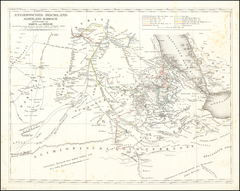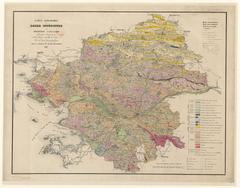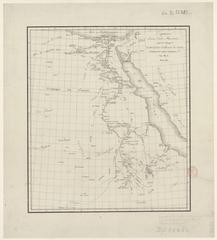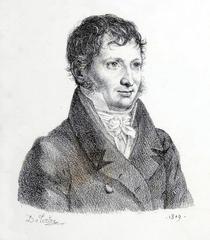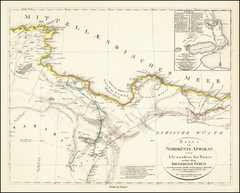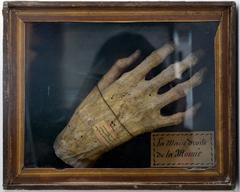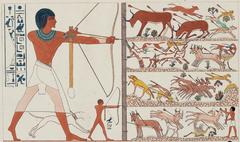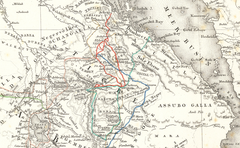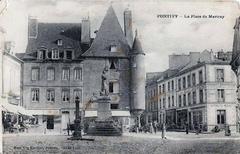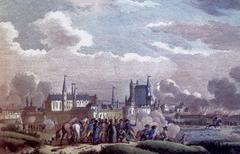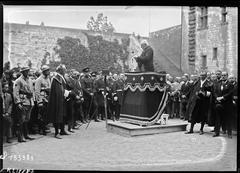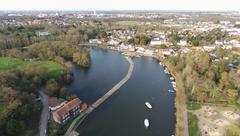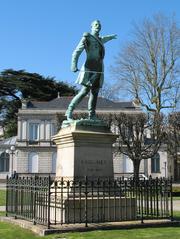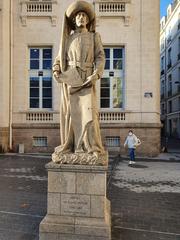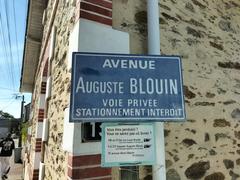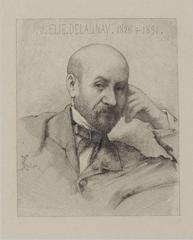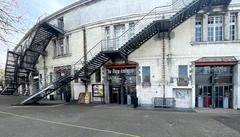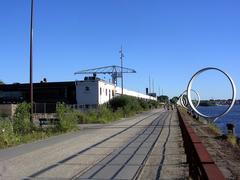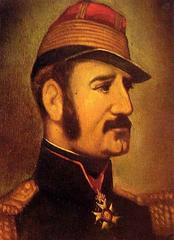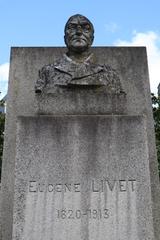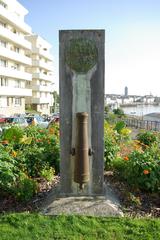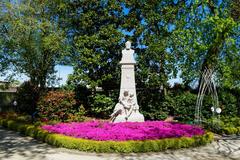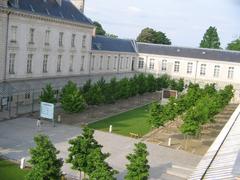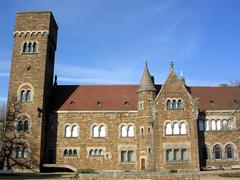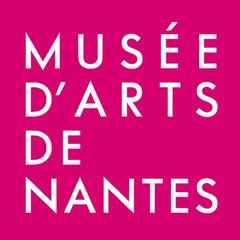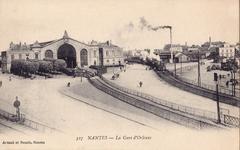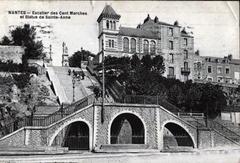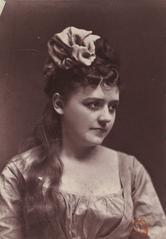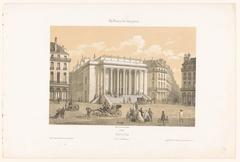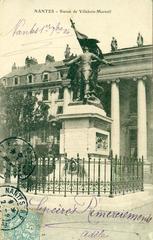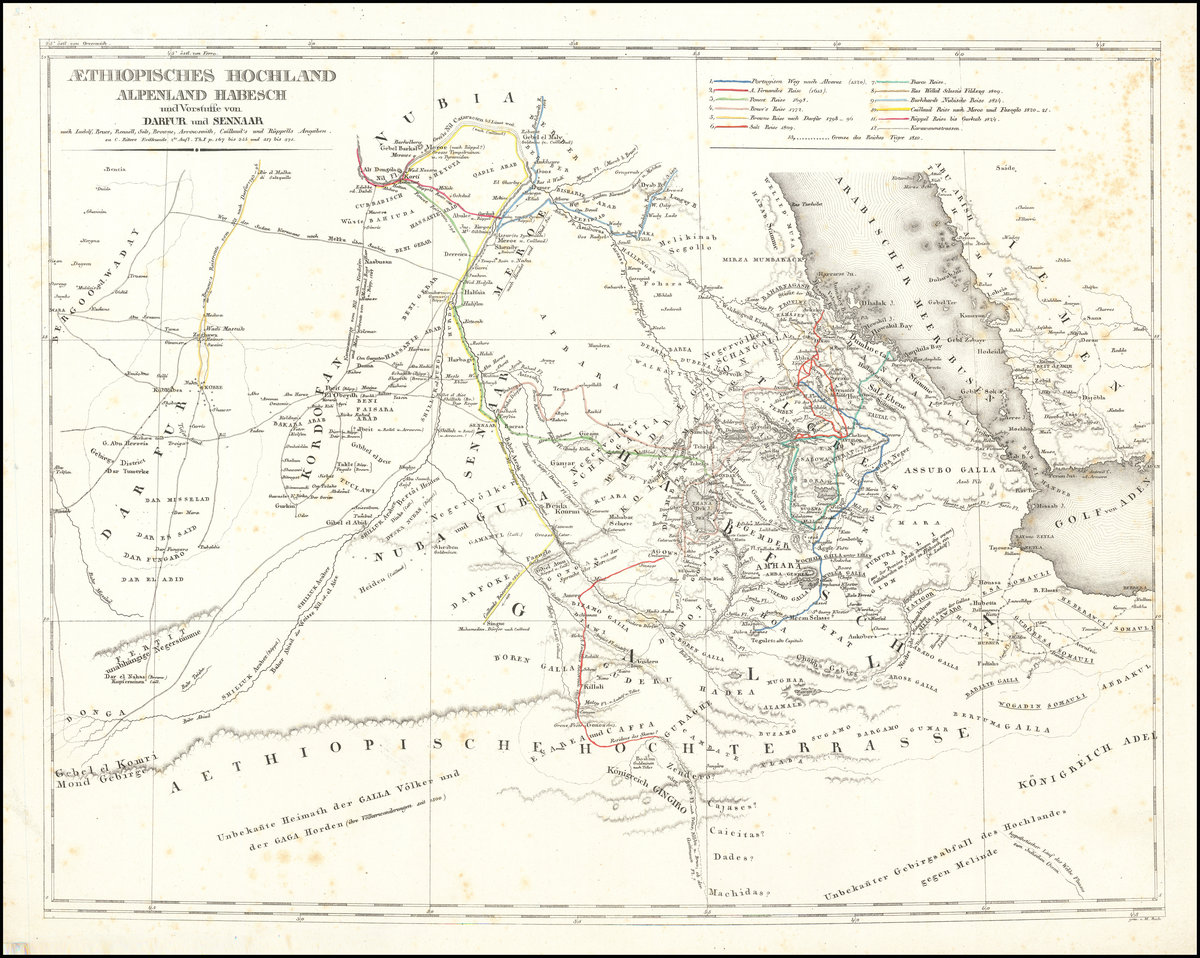
Frédéric Cailliaud in Nantes, France: Visiting Hours, Tickets, and Historical Sites Guide
Date: 14/06/2025
Introduction: Discovering Frédéric Cailliaud’s Legacy in Nantes
Nantes, a city rich in history and culture, is intrinsically linked to the life and work of Frédéric Cailliaud (1787–1869). An eminent explorer, mineralogist, naturalist, and Egyptologist, Cailliaud’s groundbreaking research and global explorations laid the foundation for significant advancements in Egyptology and natural sciences. Born in Nantes, his meticulous documentation and collections continue to shape the city’s scientific heritage. The Muséum d’Histoire Naturelle de Nantes is the primary institution preserving his manuscripts, artifacts, and instruments, offering visitors a vivid encounter with his legacy.
This guide provides all the essential information for those seeking to explore Cailliaud’s world in Nantes: museum visiting hours, ticketing, accessibility, guided tours, and practical travel tips. Beyond the museum, discover commemorative locations like Rue Frédéric Cailliaud and Cimetière Miséricorde, along with nearby attractions such as the Jardin des Plantes and the Château des Ducs de Bretagne. Whether you are a scholar, family, or curious traveler, this guide ensures a meaningful, well-organized visit that honors Cailliaud’s enduring spirit of scientific exploration (Muséum d’Histoire Naturelle de Nantes, Nantes City Pass, Institut Nignon PDF).
Table of Contents
- Overview: Frédéric Cailliaud’s Historical Significance
- Visiting the Muséum d’Histoire Naturelle de Nantes
- Key Nantes Sites Connected to Cailliaud
- Practical Visitor Information
- Nearby Attractions
- Travel Tips and Best Times to Visit
- Frequently Asked Questions (FAQ)
- Conclusion and Recommendations
- Sources
1. Frédéric Cailliaud’s Historical Significance
Frédéric Cailliaud stands as one of Nantes’ most celebrated scientific figures. Born on Rue Graslin, his early fascination with minerals led him to Paris and, ultimately, on extensive expeditions across Europe and North Africa (horizon.documentation.ird.fr). His archaeological work in Egypt and Nubia resulted in the documentation of ancient sites, many of which are now lost, and yielded collections preserved in Nantes and prestigious French museums. Returning to Nantes in 1823, Cailliaud became director of the Muséum d’Histoire Naturelle de Nantes, transforming it into a center of scientific research and public education (en.wikipedia.org).
2. Visiting the Muséum d’Histoire Naturelle de Nantes
Location and Accessibility
The Muséum d’Histoire Naturelle de Nantes is centrally located at 12 Rue Voltaire, 44000 Nantes, within walking distance of the city’s main attractions. The museum is accessible via tram Line 1 (stop: “Médiathèque”) and several bus routes. The Nantes Gare SNCF (train station) is about a 15-minute walk or a short tram ride away (Institut Nignon PDF, Travel France Bucket List). The museum is fully wheelchair accessible, with ramps, elevators, and adapted restrooms.
Visiting Hours and Ticket Information
- Hours: Open Tuesday to Sunday, 10:00–18:00. Closed Mondays and select public holidays.
- Tickets: Adults: €5–€7; reduced rates for students and seniors; free for children under 6 and on the first Sunday of each month (except July–August). Tickets are available onsite and online (official museum website).
- Nantes City Pass: Offers free or discounted entry, unlimited public transport, and additional benefits (Nantes City Pass).
Cailliaud Exhibitions and Collections
The museum features Cailliaud’s mineral and fossil collections, Egyptian antiquities, and personal manuscripts. Highlights include:
- Mineralogy and Fossil Displays: Specimens collected during Cailliaud’s expeditions, organized by region and era.
- Egyptology Section: Artifacts from Egypt and Nubia, including amulets, pottery, and tools, with interpretive panels on Cailliaud’s expeditions (Mainterot, 2008).
- Personal Archives: Notebooks, sketches, and correspondence, offering insight into Cailliaud’s methods and discoveries.
Photography is permitted without flash; tripods are not allowed.
Guided Tours and Educational Activities
Regular guided tours (in French, occasionally in English) focus on Cailliaud’s life and the broader collections. Workshops and family activities encourage hands-on exploration. Tours are popular during weekends and holidays—advance booking is recommended.
3. Key Nantes Sites Connected to Frédéric Cailliaud
Rue Frédéric Cailliaud
A central Nantes street commemorates the explorer. While primarily residential, it stands as a symbolic landmark (Rue Frédéric Cailliaud Map). It’s conveniently located near the Jardin des Plantes and Musée des Beaux-Arts.
Cimetière Miséricorde
Visit the Cimetière Miséricorde, where Cailliaud and his wife are buried. Obtain a map at the entrance or inquire at the office for directions to his grave.
Sozo Hotel
Not directly tied to Cailliaud, the Sozo Hotel occupies a converted 19th-century chapel at 16 Rue Frédéric Cailliaud, opposite the Jardin des Plantes. It serves as a unique accommodation option for visitors exploring Cailliaud-related sites.
4. Practical Visitor Information
Nantes City Pass and Ticketing
The Nantes City Pass grants access to major museums—including the Muséum d’Histoire Naturelle—public transport, tours, and select river cruises. Passes start at €39 for 48 hours (2025 prices).
Getting Around Nantes
Nantes is pedestrian-friendly and well-served by trams and buses. Most Cailliaud sites are centrally located. The Nantes Tourism Office provides maps and visitor information.
Accessibility and Visitor Services
- Mobility: The museum and Sozo Hotel are accessible to visitors with reduced mobility.
- Cloakroom: Free lockers for personal items.
- Restrooms: Available on every floor.
- Gift Shop: Offers books, minerals, and souvenirs.
- Service Animals: Welcome throughout the museum.
Dining and Accommodation
- Nearby Dining: The Orangerie Café in the Jardin des Plantes is popular for light meals. The area features numerous bistros and bakeries (Independent).
- Accommodation: Sozo Hotel offers boutique lodging in a historic setting, while other options abound in the city center.
5. Nearby Attractions
- Jardin des Plantes: A historic botanical garden ideal for relaxation and family visits.
- Château des Ducs de Bretagne: Medieval castle and museum chronicling Nantes’ history.
- Musée Dobrée: Houses some of Cailliaud’s artifacts (nyarc.org).
- Les Machines de l’île: An imaginative park featuring mechanical creatures and interactive installations.
6. Travel Tips and Best Times to Visit
- Best Times: Weekday mornings or late afternoons, especially outside school holidays, are quieter.
- Special Events: The “Voyage à Nantes” festival in July–August features cultural programming, often with museum late openings (Voyage à Nantes).
- Language: Exhibit labels are primarily in French, but key information is available in English. Staff are multilingual.
7. Frequently Asked Questions (FAQ)
Q: What are the Muséum d’Histoire Naturelle de Nantes visiting hours?
A: Tuesday to Sunday, 10:00–18:00; closed Mondays and select holidays.
Q: How much are tickets?
A: €5–€7 for adults, with reductions for students, seniors, and free entry for children under 6.
Q: Is the museum accessible for wheelchair users?
A: Yes, with ramps, elevators, and adapted restrooms.
Q: Are guided tours available in English?
A: Occasionally; audio guides in French and English are available.
Q: What other attractions are nearby?
A: Jardin des Plantes, Château des Ducs de Bretagne, Musée Dobrée, and Les Machines de l’île.
8. Conclusion and Recommendations
Exploring Nantes through the lens of Frédéric Cailliaud offers an immersive journey into 19th-century science, exploration, and cultural heritage. The Muséum d’Histoire Naturelle serves as the focal point, with accessible collections and engaging tours. Complement your visit by exploring commemorative sites and vibrant attractions nearby. Use the Nantes City Pass for convenience and value, and consult official resources for the most current information.
For updates on exhibitions and visitor services, download the Audiala app and follow local tourism channels. Embrace the opportunity to engage with Nantes’ scientific heritage and make your visit a memorable and educational experience (Muséum d’Histoire Naturelle de Nantes, Nantes Tourism Office, Institut Nignon PDF).
9. Sources
- Muséum d’Histoire Naturelle de Nantes, Official Website
- Nantes City Pass, Nantes Tourism
- Institut Nignon, Livret Museum PDF
- Horizon Documentation IRD, Frédéric Cailliaud Manuscripts
- Wikipedia, Natural History Museum of Nantes
- Meridienne, Frédéric Cailliaud Biography
- Nyarc, Cailliaud’s Archaeological Work
- Independent, Nantes Travel Guide
- Voyage à Nantes, Annual Cultural Event
